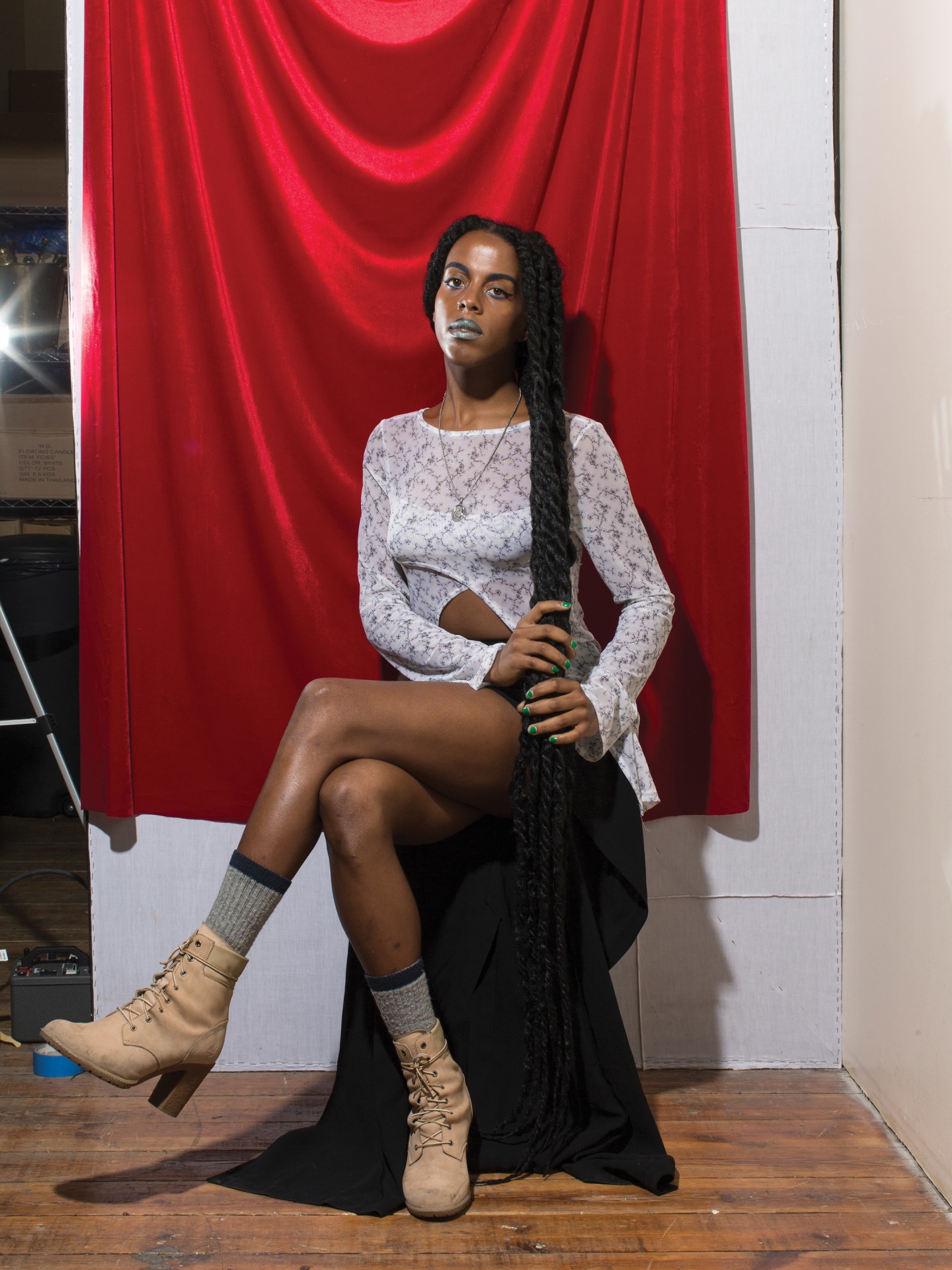The Value Of Artistic Conversations With The Past
Juliana Huxtable is rebuilding contemporary poetry by looking backwards.

Juliana Huxtable’s poems are experimental, solipsistic works comprised of raw memories and empowered ideas. It’s not a huge shock, therefore, that the Texas-born writer, DJ, and visual artist—now a central figure in New York’s underground—collects literary influences that aren’t conventional: she reads more academic texts than pageturners. While Huxtable’s punk poetry feels forward-looking, she draws plenty of inspiration from stories written before she was born.
JULIANA HUXTABLE: I tend to read a lot of theory. I studied poetry and literature in school, but a more formal relationship to [those forms] is less interesting to me. I like getting into a text, but it doesn’t really inspire my own writing. Generally, the writing that I’d like to see more of in the future is from the people that exist at the hybrid of theory and poetry; [currently] I think that model is more prevalent in the art world.
I don’t very often find myself in conversation with things that are happening now, in terms of writing. I read a lot of older authors. One book that I always go back to when I feel like I need to be regenerated is House of Hunger by a Zimbabwean writer named Dambudzo Marechera. It was written in the late 1970s, and he was dealing with questions of race in a colonial context, a desire for revolution, and how those longings mask themselves onto people who are struggling to form a national identity in a really difficult political and economic period.
Marechera was able to take those concerns but elucidate them in a way that’s totally surreal—it’s one of the most bizarre, otherworldly texts that I’ve ever read; it’s sort of schizophrenic. There’s a lot of psychoanalysis, and there’s a lot of Frantz Fanon, and it sort of predates gender and queer theory. He deals with [all] these things, but his writings register on such a surreal level. That’s the way that I approach my writing: I’m trained in a certain canon, but I try to think of things in an imaginative way. House of Hunger was the first model [of that for me] that really blew my mind. I was like, Woah—this is possible.